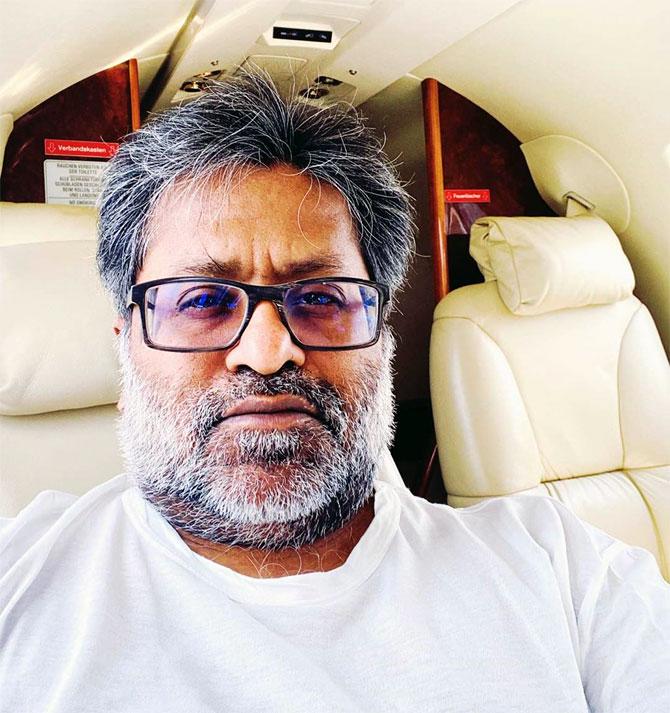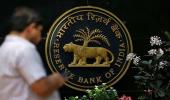The Supreme Court on Monday appointed former apex court judge Justice R V Raveendran as a mediator to settle the family property dispute involving businessman and former IPL head Lalit Modi and his mother Bina Modi.

The apex court observed that counsel appearing for both sides agreed that they would go without any pre-condition and with an open mind to settle the dispute in mediation.
"….We also think the issue can be resolved by way of mediation," a bench headed by Chief Justice N V Ramana said.
"Accordingly, we appoint Justice R V Raveendran, a retired judge of this court, to mediate and settle the dispute," said the bench, also comprising justices Krishna Murari and Hima Kohli.
The bench also asked the parties to maintain confidentiality during the mediation.
On July 28, Lalit Modi and his mother had told the bench that the apex court-mandated mediation to resolve a long pending property dispute in the family had failed.
The apex court, on December 16 last year, had taken the consent of rival parties to the family property dispute and had appointed former apex court judges – Justices Vikramjit Sen and Kurian Joseph – to mediate and help the Modis to find an amicable solution.
The top court was hearing Lalit Modi's appeal against the judgement of a division bench of the Delhi high court that the anti-arbitration injunction lawsuit filed by Bina Modi, wife of late industrialist K K Modi, against her son is maintainable.
During the hearing on Monday, senior advocate Kapil Sibal, appearing for Bina Modi, told the bench that they would not alienate any of the trust property.
Senior advocate Harish Salve, appearing for Lalit Modi, told the apex court that they have moved an application seeking to restrain Bina Modi from alienating any of the trust properties.
"Now again I am proposing, are you willing for another round of mediation. Not arbitration. Are you willing?," the CJI observed during the hearing.
Salve said the mediation cannot start with any pre-condition and the parties have to go into mediation with an open mind.
Senior advocate A M Singhvi, who also appeared for Lalit Modi, said an interim status quo should be granted and no property should be alienated.
The bench observed that Sibal has stated that no trust property will be sold.
"If all of you will agree, I will suggest one name, only for mediation. Justice Raveendran," the CJI said.
During the hearing, Sibal said the court may record the statement that no trust property is being sold by his client.
"We are not selling any trust property. Your lordships may record the statement," he said.
The bench listed the matter for hearing after four weeks.
A lawsuit had earlier been filed by Bina Modi.
It sought to restrain the arbitration proceedings initiated by Lalit Modi, a founder of the Indian Premier League (IPL), in Singapore over the dispute.
In December 2020, the division bench of the high court held that it has the jurisdiction to decide Bina Modi's plea challenging Lalit Modi's move to initiate arbitration proceedings in Singapore.
The division bench had set aside the judgement of a single judge of the high court, which had said it does not have the jurisdiction to adjudicate the anti-arbitration injunction suits filed by Lalit Modi's mother Bina, his sister Charu and brother Samir and they are open to taking such pleas before the arbitral tribunal in Singapore.
The single judge had said an anti-arbitration injunction suit does not lie, so the pleas are not maintainable, and dismissed the matter.
Bina, Charu, and Samir, in two separate suits, contended that there was a trust deed between the family members and the K K Modi family trust matters cannot be settled through arbitration in a foreign country according to Indian laws.
They have sought a permanent injunction restraining Lalit Modi from prosecuting or continuing with the application for emergency measures and any arbitration proceedings against them in Singapore.
The division bench, in its judgement passed on December 24, 2020, had said the subject dispute ought to have been prime facie adjudicated by a single judge, who had to exercise the jurisdiction vested in the court as all the parties are Indian citizens and ‘situs' of immovable assets of the trust is in India.
The division bench had remanded two civil suits to the single judge for further proceedings, in accordance with the law, from the stage of issuance of summons and directed the registry to list them for hearing.
According to the case, the trust deed was executed in London by K K Modi as settlor/managing trustee and Bina, Lalit, Charu, and Samir as trustees, and in pursuance of an oral family, the settlement was recorded between them on February 10, 2006.
K K Modi died on November 2, 2019, after which the dispute emerged amongst the trustees.
Lalit Modi contended that after the demise of his father, in view of the lack of unanimity amongst the trustees regarding the sale of trust assets, a sale of all assets of the trust has been triggered and distribution to beneficiaries has to occur within one year thereof, the single judge had noted.
His mother and the two siblings contended that on a true construction of the trust deed, no such sale has been triggered.










